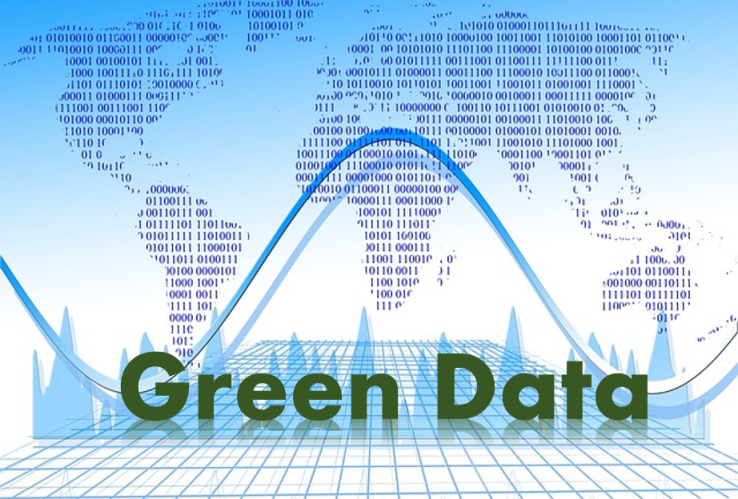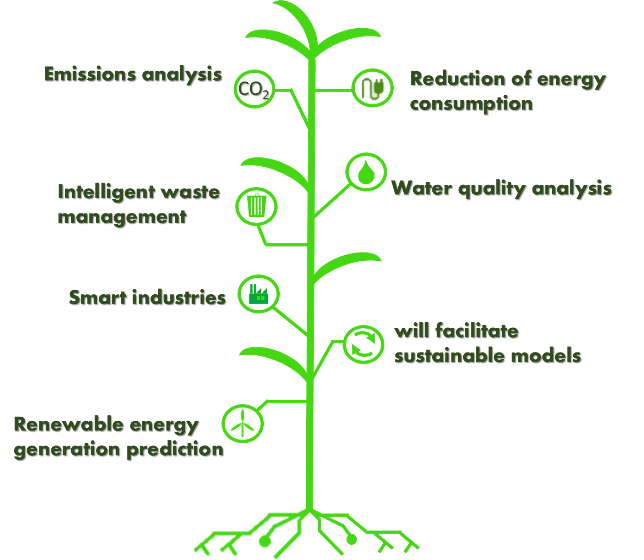Big Data to save the environment
We know that currently the big data we generate are very important for some sectors of the economy and society, but in the future they may have a decisive role in saving our planet and ensuring the sustainability of society.

The analysis of massive data to mitigate climate change is known as green data. Source: edited image, original from pixabay.com.
In the last 5 years alone we have generated more data than in the previous 50 years, and Big Data is the technology that is allowing us to analyze this large volume of data to obtain important information from them and allow us to create solutions to some of society's problems, in this sense, the analysis of massive data is already providing solutions to make energy systems more efficient and make cities smarter, to cite a few examples.
Green Data
Climate change is the biggest challenge we currently face as a society, and the analysis of massive data related to the environment, such as air quality, intelligent waste management, water use, urban noise, biodiversity, among others, in order to extract valuable information that allows us to use it in machine learning projects in order to find patterns and perform predictive analysis is already a reality known as Green data.
Uses of environmental big data
The volume of environmental data can be used in different ways, such as finding transportation dynamics that reduce the volume of carbon emissions, reducing electricity consumption, finding more productive and sustainable models, assessing the impact of some human activities on aquifers or optimizing energy management.

Contribution of big data to the environment. Source: image elaborated in powerpoint.
Among some of its most relevant uses we can mention:
Air quality prediction. The analysis of data related to air pollution using technologies associated with big data and Artificial Intelligence makes it possible to create predictive models to estimate what air quality will be like in the following hours or days, or to identify areas where air quality is lower and adopt strategies aimed at correcting this deficiency.
Water management. Only 3% of the planet's water is fresh water, so there is a great need to collect large volumes of data to estimate consumption patterns and determine the impact of human activities on aquifers, as well as to forecast future demand.
Increasing field yields. Collecting data on agriculture is also possible, especially when it comes to where to plant and when, or protecting crops from pests and weather events, in order to improve crop yields.
Biodiversity conservation. As our cities and populations expand, the territory available for flora and fauna shrinks; in this sense it is vital to monitor the natural environment and its biodiversity through satellites, allowing us to measure deforestation or ocean acidification for example, and thus measure our impact on the various ecosystems and adopt measures for their mitigation.
In short, we can say that environmental big data involves the collection of an immense amount of data that will allow us to monitor the environmental health of the planet and make the exploitation of its resources more efficient by reducing the impact of our activities on the environment. Undoubtedly, the power of data today is fundamental for many sectors, and the environment can also benefit from it.
Thanks for coming by to read friends, I hope you liked the information. See you next time.
Thanks for the blog, it's really important, especially with climate change and various natural processes, to control the processes of environmental change, you can learn more about this it's an indispensable tool to control and preserve the ecological state. As an environmentalist and environmentalist, it is important for me to have access to accurate and reliable data about the quality of air, water, and other elements of the environment